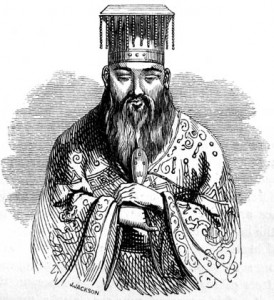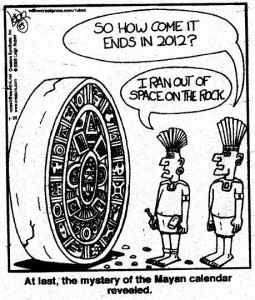One thought that has been plaguing me throughout our discussion of the early Greek philosophers is why do we start here? I know that other early cultures and times have their own phalanx of great thinkers (before and after the great thinkers of Greece).
I initially imagined a man (because all great thinkers of that era had to be men), an early Mayan, sitting by the fire with his blue corn tacos espousing his thoughts on the universe to all who would listen. And because he would not shut-up, the tribe eventually made him a shaman. I discussed these thoughts with my husband (who is a scholar working on his second and third master’s degrees simultaneously). He said, you’ve just described Eurocentrism. I did not know that my thoughts had a term!
In preparation for this blog post, I did a cursory scouring of the internet for information about Eurocentrism. Here is some of what I found that struck a chord with me.
Eric Gerlach teaches philosophy, logic, ethics and religion at Berkeley City College. He has a relevant blog post about teaching multiculturalism as opposed to Eurocentrism. He synthesized my thoughts in the following quote:
“The Eurocentric View of the Ancient World:
Ancient Greece was the birthplace of the Western mind and culture, distinct from others in critical rational inquiry and diverse individual freedom.
The Multicultural View of the Ancient World:
All ancient cultures had critical rational inquiry and diverse individual freedom. Ancient cultures, including ancient Greece, were neither exceptional nor perfect in the exercise of reason and freedom.”
If you would like to see more from Mr. Gerlach, you can visit the following blog post: http://ericgerlach.blogspot.com/2010/03/teaching-multiculturalism-not.html
Mesopotamia or Babylon was a treasure trove of philosophy, science, mathematics and medicine. There was even an extensive medical text called Diagnostic Handbook written by the physician Esagil-kin-apli of Borsippa, during the 11th century, BCE. That was hundreds of years before Hippocrates. If you would like to learn more about ancient Babylon and their advances, you can visit the following site: http://www.reference.com/browse/Mesopotamia
I understand that to study the history of philosophy and further, psychology, we have to start somewhere, I just think that we should remember that as Solomon once said: there is nothing new under the sun.





Mary Tomkins
1:59 am, 09.06.10
Wow, that’s a good point. It’s kind of something I’ve been thinking about too, since a lot of my classes have been bringing in the ancient Greeks this week. I think part of it is because they’re the best documented sources we have, but then again we always attribute these ideas as originating with their Greek philosopher, instead of just being repeated by them. And I’ve never heard of Esagil-kin-apli of Borsippa, even though apparently he wrote a whole book. I wonder what makes the Greeks so special.
Rachel Jinkerson
8:44 am, 09.06.10
Thank you for reminding us that just because Greece is credited with something, does not mean the ideas and discoveries originated with them. They were a dominant power in ancient times, yet, America is the dominant power today. Does that mean that we are the ones who will be documented and remembered the most? I think we have to be careful not to think too highly of ourselves. Even with all the advancements and wisdom the Greeks had, their power eventually crumbled. Someday ours will too.